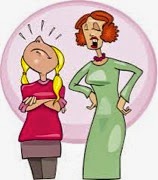- Books Name
- First Flight and Foot prints
- Publication
- ACERISE INDIA
- Course
- CBSE Class 10
- Subject
- English
Poem-6
Amanda
By Robin Klein

Amanda Poem Introduction
Robin Klein has expressed the thoughts of a young girl named Amanda, who is constantly chastised by her mother for making mistakes. Mistakes that she considers to be such because they are not part of the society's code of good behaviour.
Amanda Poem Summary
The poem is about a girl named Amanda and her mother, who is constantly nagging her about her mistakes. She is probably first called out by her mother for biting her nails and not sitting properly. Amanda, according to her mother, sits in a very sluggish manner. Amanda imagines herself as a mermaid living a peaceful and relaxing life in the beautiful green sea. She is also chastised for not cleaning her room and shoes, as well as not doing her homework. She then imagines herself to be an orphan because she is tired of constantly being watched by her parents.
She claims that she would have enjoyed her freedom then by making patterns in the sand with her bare feet and would have lived a peaceful life. Amanda is then chastised for eating too many chocolates, which causes pimples. She is also chastised for failing to listen to her mother. So Amanda imagines herself as Rapunzel, a character from a fairy tale, and wishes to live in a huge tower like her. She will be alone in the tower, living a peaceful life and never allowing anyone to enter.
Finally, the mother requests that she refrain from being moody because she does not want anyone to blame her for harassing her daughter. At this time, the poet has not written a response from Amanda's point of view. This constant nagging has made her so depressed that she has given up imagining herself as someone else. She used to do this to get away from her parents' constant harassment and dominance.
Amanda Poem Explanation
Don’t bite your nails, Amanda!
Don’t hunch your shoulders, Amanda!
Stop that slouching and sit up straight,
Amanda!
(There is a languid, emerald sea,
where the sole inhabitant is me—
a mermaid, drifting blissfully.)
- Hunch: bend
- Slouching: sitting in a lazy way
- Languid: relaxed
- Emerald: here, green color
- Inhabitant: resident
- Drifting: carried slowly by the water
- Blissfully: happily
The poet is describing Amanda, a young girl who is constantly chastised by her mother for her errors, and how she imagines her life to be. According to the poet, Amanda's mother is chastising her for a bad habit of biting her nails. She then instructs her to sit up straight without bending her shoulders. Amanda, who has a habit of bending her shoulders and sitting sluggishly, is being called out because her mother wants her to sit properly. She imagines herself in a deep green sea when she is being scolded by her mother at this time.She declares her desire to be the sole occupant of this lovely green sea. She imagines herself as a mermaid who lives alone and leads a very relaxing life. She expresses a desire to be carried away by the current of water and experience the relaxing environment that exists there.
Literary devices:
- Anaphora: Repeated use of a word at start of two or more lines (don’t bite… don’t hunch)
- Assonance: use of vowel sound ‘o’ (don’t hunch your shoulders)
- Rhyme: aaba ccc (Amanda, Amanda, straight, Amanda, sea, me, blissfully)
- Metaphor: use of word emerald sea for green colour of sea being similar to the colour of emrald
- Repetition: use of word ‘Amanda’
- Imagery: drifting blissfully
- Alliteration: ‘Stop that slouching and sit up straight’ – ‘s’ sound is being repeated at the start of closely placed words.
- Allusion: ‘mermaid’ is a well known imaginary creature.
Did you finish your homework, Amanda?
Did you tidy your room, Amanda?
I thought I told you to clean your shoes,
Amanda!
(I am an orphan, roaming the street.
I pattern soft dust with my hushed, bare feet.
The silence is golden, the freedom is sweet.)
- Orphan: A child whose parents are dead
- Hushed: quiet and still place
The poet claims that Amanda's mother is questioning her about whether or not she has completed her homework. Then she inquires as to whether or not she has cleaned her room. In addition, she is reminded to clean her shoes. So, as we can see, the mother is constantly questioning her about whether or not her homework was completed, or whether or not she had cleaned up her room and shoes. However, while Amanda is listening to her mother's instructions, she imagines herself as an orphan wandering the streets. This means she imagines that if she hadn't had parents, she would have been able to walk freely in the streets. She would have quietly drawn designs on the soft dust with her bare feet. As a result, we can see that she thinks in opposition to her mother. Her mother expects her to keep everything in order. Amanda, on the other hand, wants to run around in the dirt with her bare feet. Furthermore, she is so tired of her mother's constant instructions that she says silence is golden, which means silence is extremely important and valuable. She continues, "Freedom is sweet." This means that when she is with her mother, she never feels free.
Literary devices:
- Anaphora: Repeated use of a word at start of two or more lines (did you finish….did you tidy)
- Rhyme: Rhyme scheme is aada eee (Amanda, Amanda, shoes, Amanda, street, feet, sweet)
- Assonance: use of vowel sound ‘o’ (Thought, told, you, your, shoes)
- Repetition: use of word ‘Amanda’
- Metaphor: silence is golden – silence is said to be glorious like golden colour
freedom is sweet – freedom is said to be sweet in taste.
Don’t eat that chocolate, Amanda!
Remember your acne, Amanda!
Will you please look at me when I’m speaking to you,
Amanda!
(I am Rapunzel; I have not a care;
life in a tower is tranquil and rare;
I’ll certainly never let down my bright hair!)
- Acne: Pimples
- Rapunzel: A girl in the fairy tale by Brothers Grimm
- Tranquil: calm, quiet
- Rare: uncommon
Amanda's mother then forbids her from eating chocolate. She reminds her of the pimples Amanda gets from eating chocolate. Finally, she chastises her for not listening to what her mother says. Amanda is currently imagining herself as Rapunzel. Rapunzel was a fairy tale character who was imprisoned in a tower by a witch. The witch used to climb the tower using Rapunzel's long hair, which she let down through the window. So, Amanda now wishes to be Rapunzel because she believes that life in the tower will be peaceful and unusual. She believes she will be liberated and able to live in peace in the tower. She also promises herself that she will never let her hair down in front of anyone, so that no one can approach her in the tower.
Literary devices:
- Allusion: use of famous fairy tale character Rapunzel
- Rhyme: rhyme scheme aafa ggg (Amanda, Amanda, you, Amanda, care, rare, hair)
- Assonance: use of vowel sound ‘e’ and ‘o’ (Will you please look at me when I’m speaking to you
- Consonance: use of sound ‘r’ (I am Rapunzel; I have not a care …..Bright hair)
- Repetition: use of word ‘Amanda’
Stop that sulking at once, Amanda!
You’re always so moody, Amanda!
Anyone would think that I nagged at you,
Amanda!
- Sulking: be in a bad mood
- Moody: unstable
- Nagged: harass
Amanda's mother has now warned her for acting strangely. She begs her to stop being grumpy. Furthermore, she accuses her of being in such a bad mood. She also chastises her, saying that her actions will lead people to believe that Amanda is constantly harassed by her mother. So, we can conclude that, despite the fact that Amanda is constantly chastised by her mother for minor infractions, she is unable to respond. If she reacts to this by becoming emotional, her mother scolds her and tells her that she should not act like this because others will think Amanda's mother is very domineering towards her child.
Literary Devices:
- Alliteration: ‘Stop that sulking’ – ‘s’ sound is repeated at the start of closely placed words
- Repetition: use of word ‘Amanda’
- Rhyme scheme: aaha (Amanda, Amanda, you, Amanda)
About the Author

Robin Mc Maugh Klein is a children's book author from Australia. She is a children's and young adult fiction author. Hating Alison Ashley, People Might Hear You, and other works are among her most well-known.

 ACERISE INDIA
ACERISE INDIA
